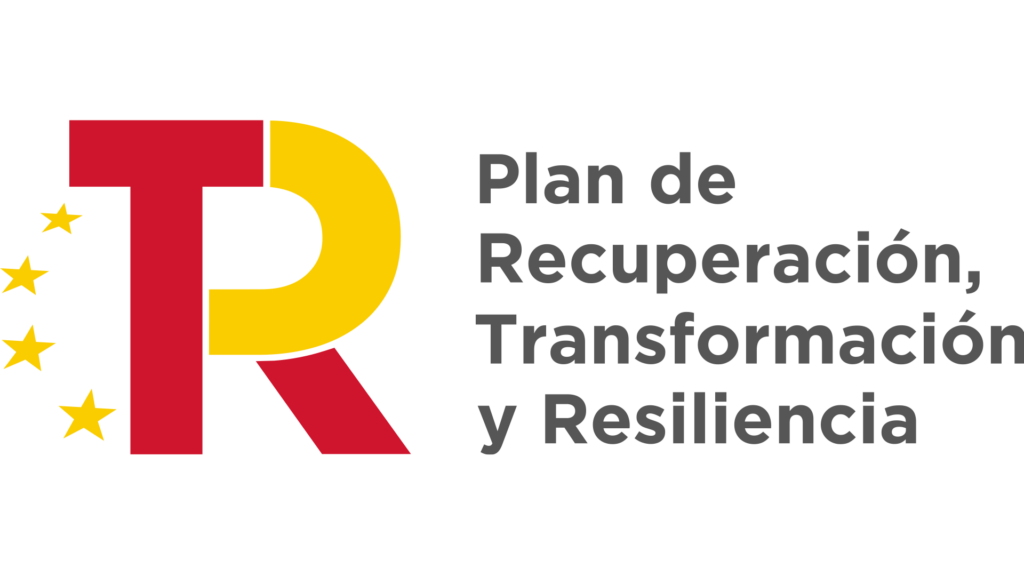- OLIVE -
See profitability, productivity and convenience in the advancement that new technologies offer us.
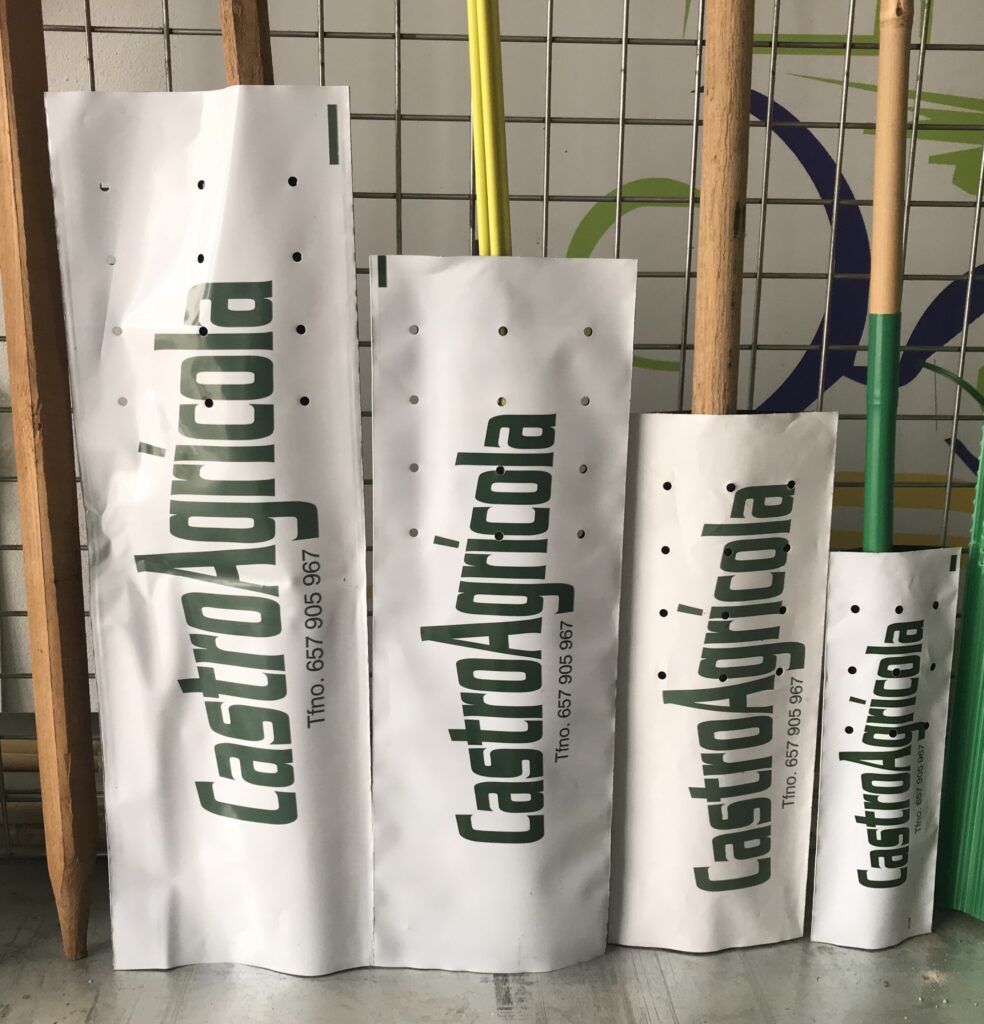
OLIVE PLANTATIONS
At CASTROAGRICOLA we are specialized in intensive and super-intensive olive plantations, also in almond and pistachio plantations and to a lesser extent but with extensive experience, fruit trees such as orange, pomegranate, peach, fig, etc.
Due to our extensive experience in the field of mechanized planting guided by GPS (RTK), we try to help any farmer, expert or new, with traditional olive groves or with new projects, see profitability, productivity and comfort in the progress that we have made. They offer new technologies, from the beginning of their idea.
To do this, we must take into account some very important steps that will serve as a guide so that from the beginning to the end, our project is fruitful, effective and efficient.
Some points that we will go on to list are evident, each farmer knows his land, his area, the climatological agents that assist it, the type of land and the variety or varieties that can do well in each type of land, but for those that do not If you are so clear or want more exhaustive and professional advice, do not hesitate to follow the following guide, we are sure that some aspects to take into account will surprise you and give you a new vision of what it is and what needs to be taken into account. so that the whole is homogeneous and perfect.
SOIL STUDY
We need to spend a little time on these points.
Regarding the study and analysis of the soil, and unless it is a newly acquired land, it is normal for the owner to know the characteristics of each land, however, an analysis is always recommended to optimize the resources of the soil profile to the maximum. our soil.
The olive tree is a fruit tree that adapts well to a wide variety of soils, although it has limitations in PH, salinity, texture and depth that should be taken into account when making decisions.
In areas where, because they are irrigated or have had verticilliun dahliae host crops, it will be necessary to carry out a study in which the amount of propagule per unit area of the aforementioned fungus is determined and although the times offer us varieties that claim to be resistant , it is best to discard.
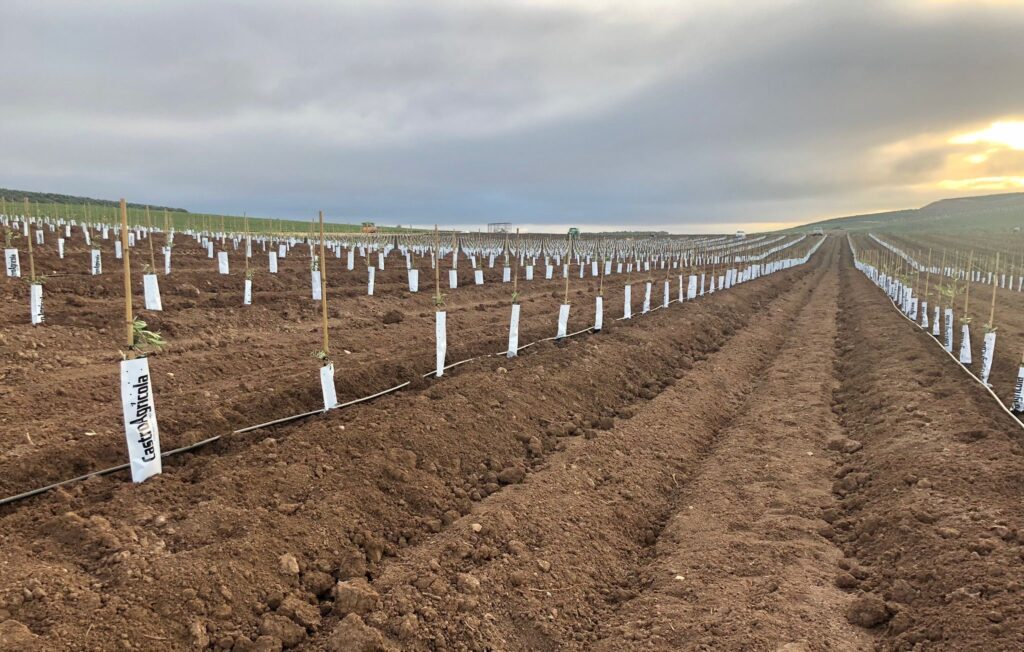
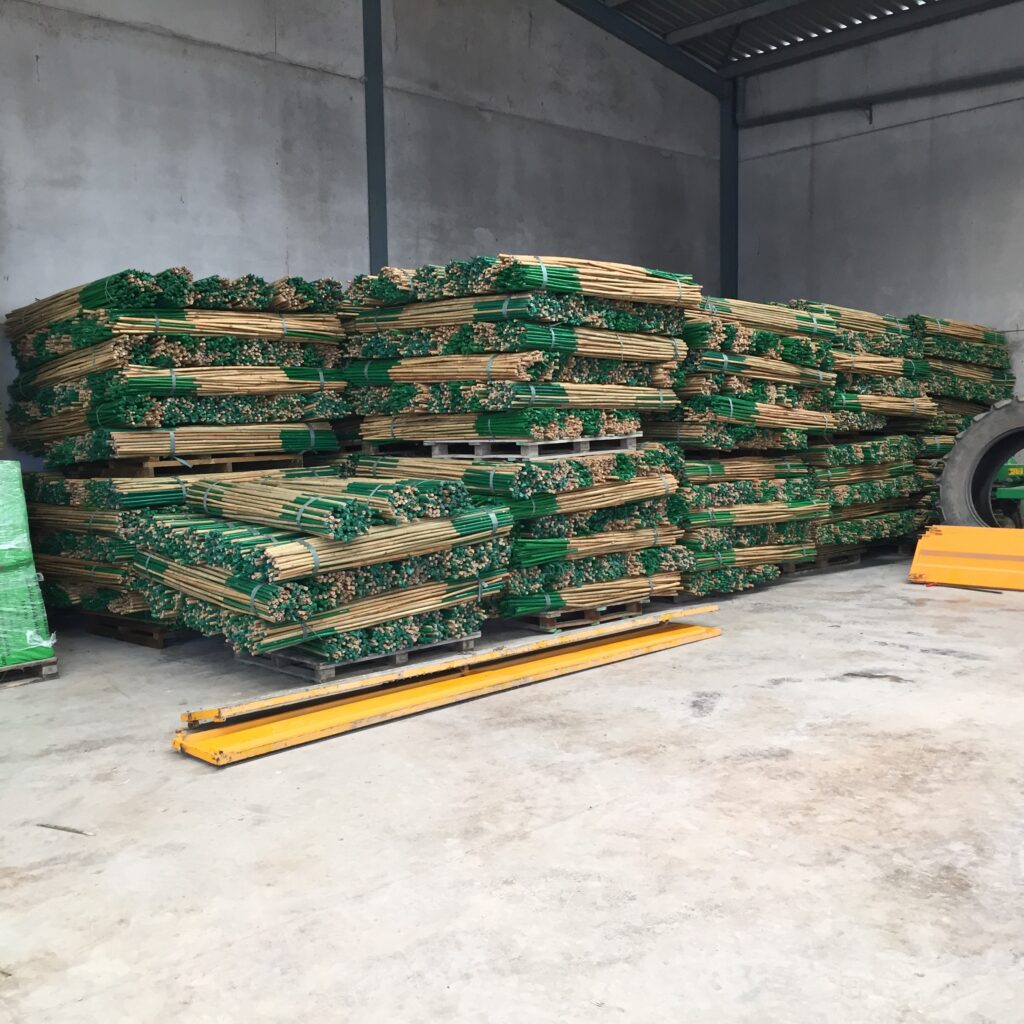
VARIETY OR VARIETIES TO CHOOSE
The variety or varieties to choose is also an important factor to take into account.
There are many varieties, the most common and the ones most often chosen are picual, arbequino and hojiblanco, the ones that are spreading the most in new plantations, mainly due to their high productivity and the quality of their oils. There are cases of varieties such as Picual, which, although very prone to verticillosis, are currently highly in demand.
In farms of certain sizes it is advisable to use at least two or three varieties that allow us to stagger the harvest and at the same time obtain a quality product.
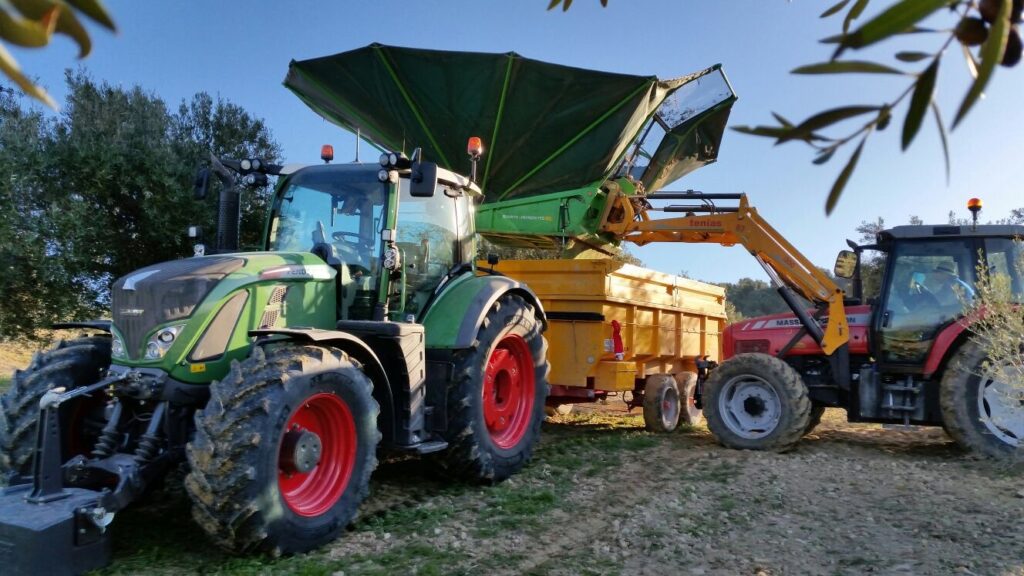
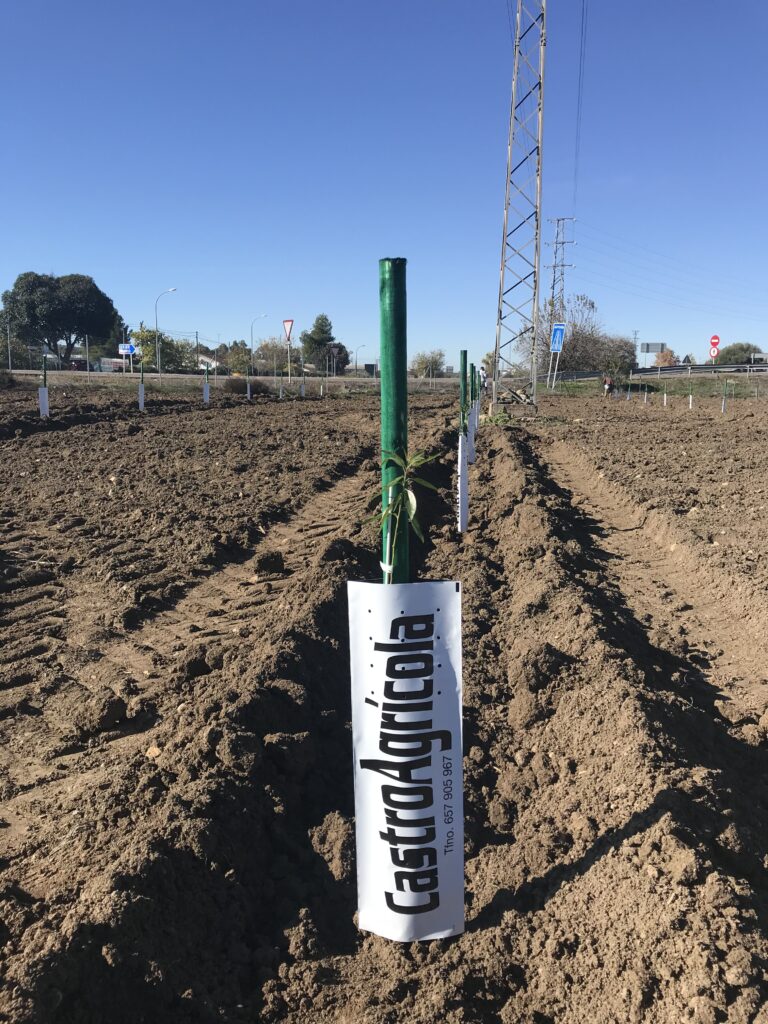
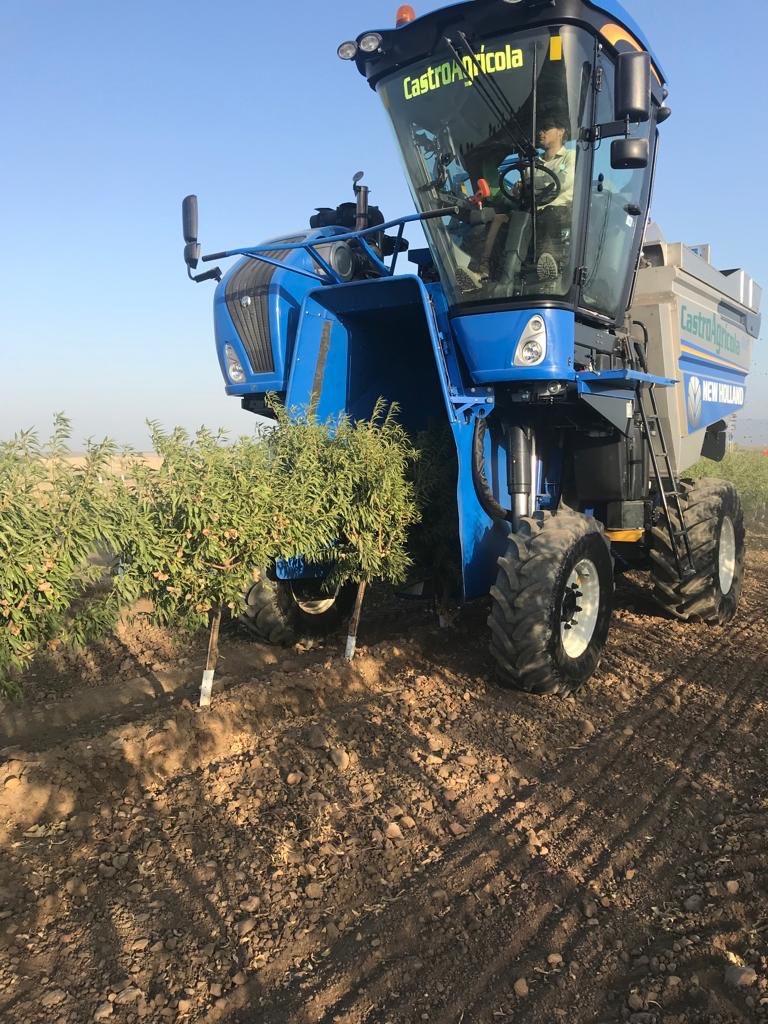
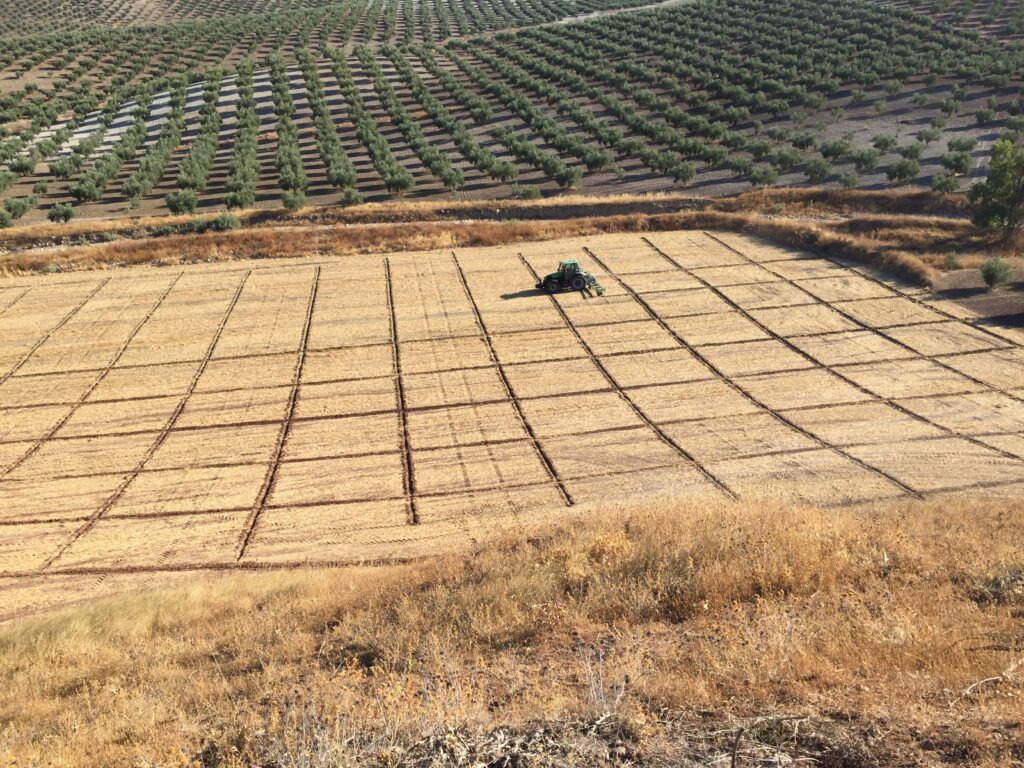
FRAME, DIRECTION
Another very important decision is the choice of the planting framework. We must remember that each variety has a certain size and vigor and light and aeration requirements due to its tolerance to diseases such as repilo. A wrong framework can make us fail in the medium-short term, since it is proven that production is directly proportional to the level of lighting intercepted by the plant.
Likewise, there is a tendency to initially double the definitive framework, which allows reaching the optimal canopy volume per hectare in a few years, and therefore full production. This option greatly increases the profitability of the project since the increase in the initial investment is not high.
When defining the planting direction, criteria of maximum lighting, water evacuation and minimization of erosion will be taken into account, as well as maximum use of the plot where the crop is to be planted.
Auxiliary materials
materials
. Tutor
The current market offers us several options, they can be made of bamboo, treated pine, acacia, etc..., but the fundamental thing is that the stake, as a support element for the plant and future tree, is strong and durable, guaranteeing its function. The height will be variable, but always taking into account that it allows us to form the cross of the cup for a later comfortable and effective mechanized harvesting.
.Protective
The main functions of this planting accessory are: to protect from rodents, to insulate from herbicides and the most technically advanced (white exterior-black interior) manage to reduce the thermal impact of the sun thanks to its white exterior and minimize the appearance of sprouts or thorns thanks to to its black interior, an important aspect to avoid pests such as euzophera that penetrates through the wounds of the desvareto. Its height will range between 40 and 60 cm depending on plant height.
. Tying Systems
Tying systems are also important, there are several;
Rubber anchor; It is the most resistant and durable system since it is made with rubber, it guarantees resistance and durability for the entire time that the plant needs to be attached to the stake, it is also easy to put on and take off, it is not a fixed system.
Staple tape; Until now the most used system in super-intensive or high-density plantations. It guarantees fixation to the stake, but its useful life is limited since inclement weather (sun, cold, humidity) directly affects its rapid deterioration.
Lycra or cotton tape; This tying system is the least used, although it is not disposable. It fulfills its function, but we run the risk of it strangling our plant throughout its development if we are not careful to replace it in time.
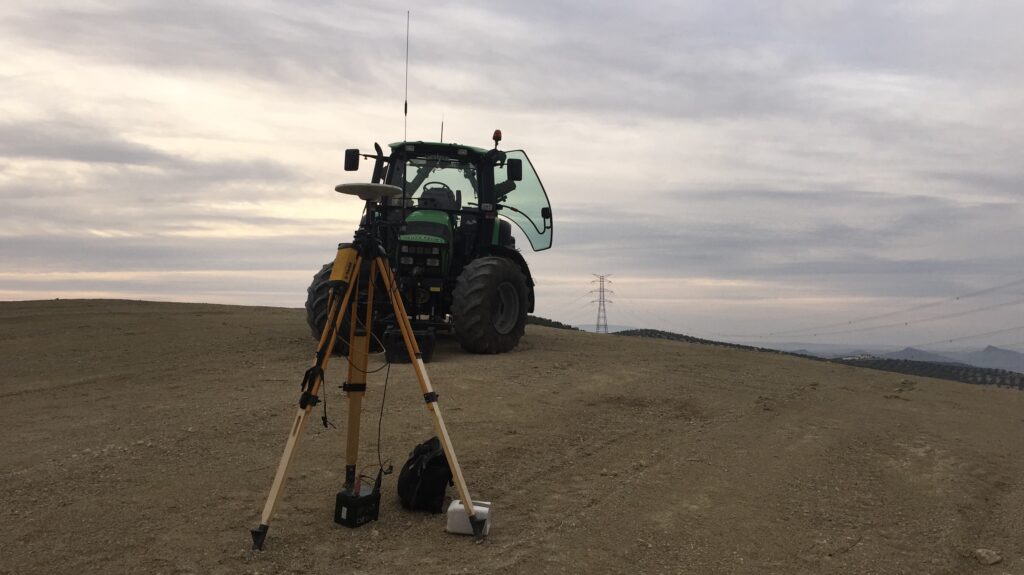
PLANTING DATES
The planting date is a point to take into account, normally plantations have their key seasons, spring and autumn, although if we had irrigation systems we could extend the planting seasons.
Preparation of the land is also very important, it will be necessary to condition the land, to do this a series of tasks must be carried out that, although expensive, will be carried out only once during the life of the plantation, so it is not advisable to skimp on them. For the development of the roots, the plant must find soft and porous soil, without obstacles that limit its growth, therefore the necessary work will be done to leave the profile of the soil explored by the roots sufficiently fine.
In flood-prone areas, the land must be leveled and/or leveled, allowing rainwater to escape and thus avoid continued flooding, which would cause the death of the plant due to root asphyxiation.
SERVICE STREETS
CATROAGRICOLA will be able to advise you and/or carry out the necessary work depending on the state of the land.
The design of our plantation, that is, the orientation, the framework, the distribution of streets and service roads that allow us to carry out the necessary tasks during the life of the plantation (phytosanitary treatments, harvesting) and access to any point of The installation of irrigation (if necessary) is essential.
Service roads must be wide and must allow access to heavy vehicles for the entry and exit of merchandise.
The service streets will be for internal use of the plantation and must be of sufficient size to allow the operation of the farm’s machinery.
The number, location and distance between service streets will be determined based on production criteria per planted unit, maximum collection lengths and maximum lengths of irrigation pipe runs, so the design of the plantation must be carried out jointly. with the design of the irrigation installation.
CASTROAGRICOLA will be able to design your plantation and then translate it as accurately as possible on the ground.
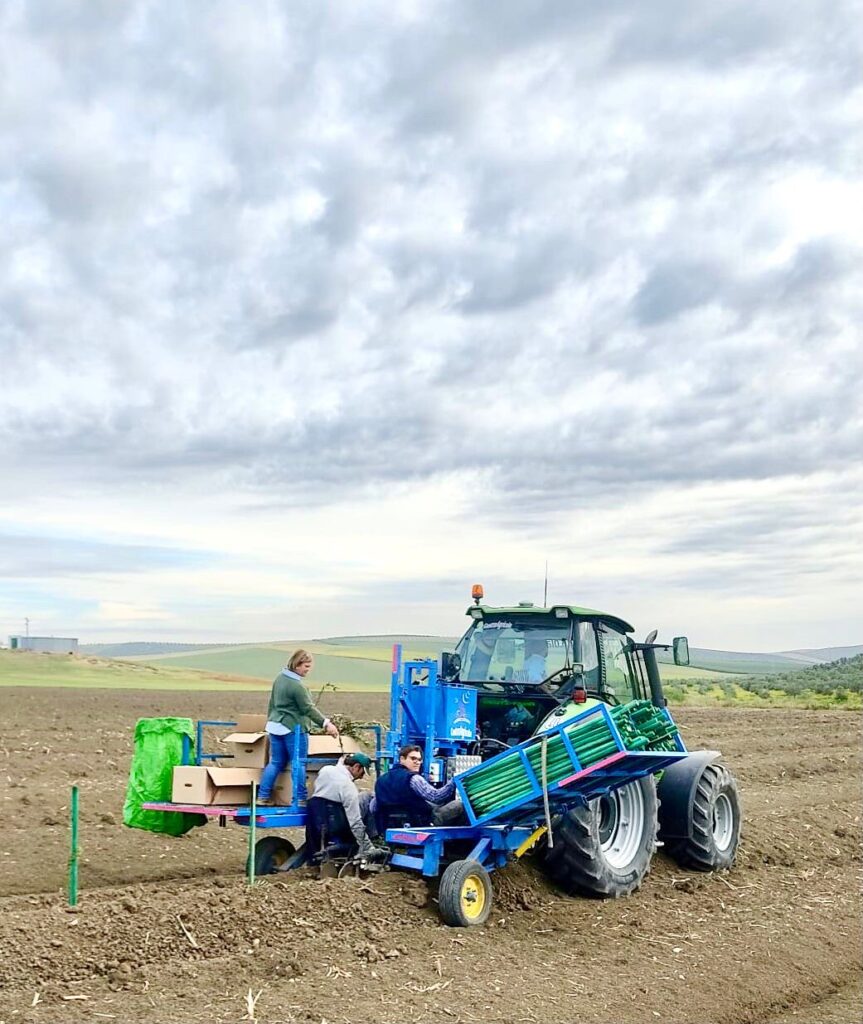
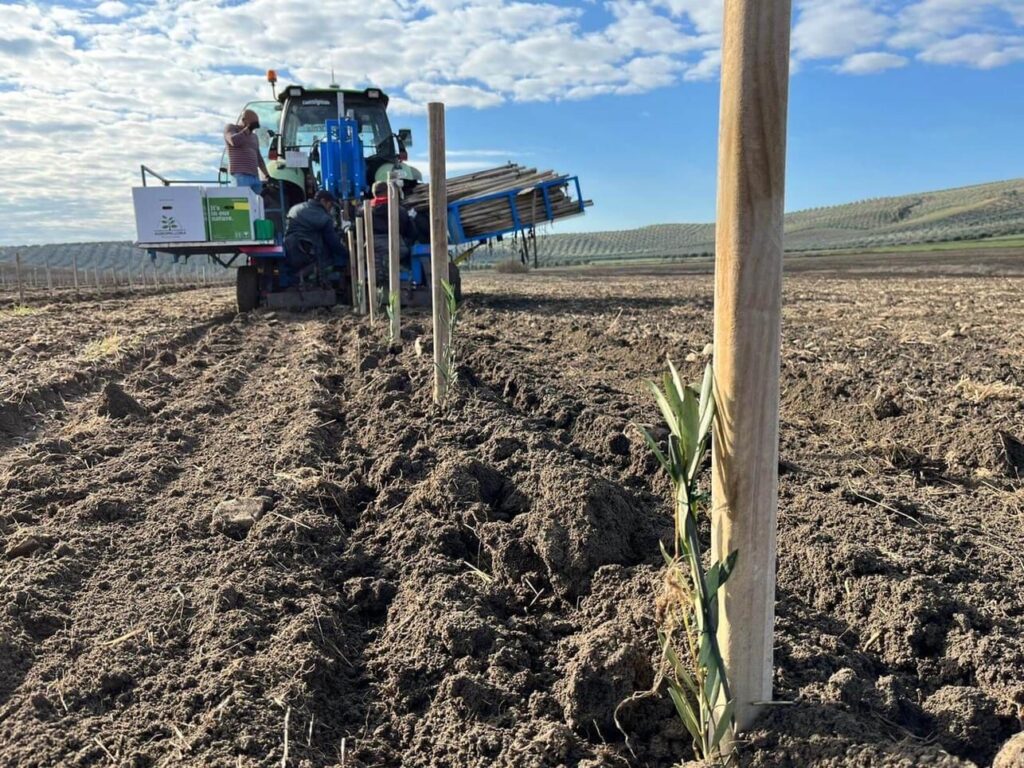

EXECUTION
The time has come to plant. Our recommendation is that it be placed in the hands of a specialized company, since errors made in this phase will harm us throughout the life of the plantation.
CASTROAGRICOLA has an exceptional technical and human team that will guarantee the success of your plantation.
For correct execution, the plant material must be handled with extreme care and implanted in the ground at the correct depth. The placement of the stakes must be as vertical as possible with sufficient and homogeneous depth and the distance between them must reflect exactly what was specified in the project phase. The tying and fastening systems to the stake must be flexible and must allow a certain movement of the plant. The tutor must protect the plant from the blow of the dominant winds, avoiding apical desiccation in the summer season and minimizing the possible friction of the plant with it as much as possible. Settlement irrigation will be essential and will multiply the guarantees and success in terms of plant development.
The first days of planting are essential for the plant’s grip, so watering will be scheduled with the necessary frequency and dosage so that it does not lack moisture at any time, avoiding excess water that would harm the plant.
Avoid attractive offers that are suspected of not being sustainable, entrust the success of your new project to an experienced company that offers guarantees. A multitude of factors intervene in a plantation, from choosing a guaranteed plant, going through all the points that we have previously explained and the way to execute it. CASTROAGRICOLA offers you all this in addition to the extensive experience and trust placed in our company by clients like you.

- Calle Alfarería, Nº25 - Castro del Río
- 957 370 635 / 648 872 194
- castroagricola@gmail.com
INFORMATION
- OLIVE
- ALMOND TREES
- SERVICES
- HARVESTING / HARVESTING WITH HARVESTER
- PRODUCTS
- CONTACT
DIGITAL KIT PROGRAM FINANCED BY THE NEXT GENERATION FUNDS OF THE RECOVERY AND RESILIENCE MECHANISM



